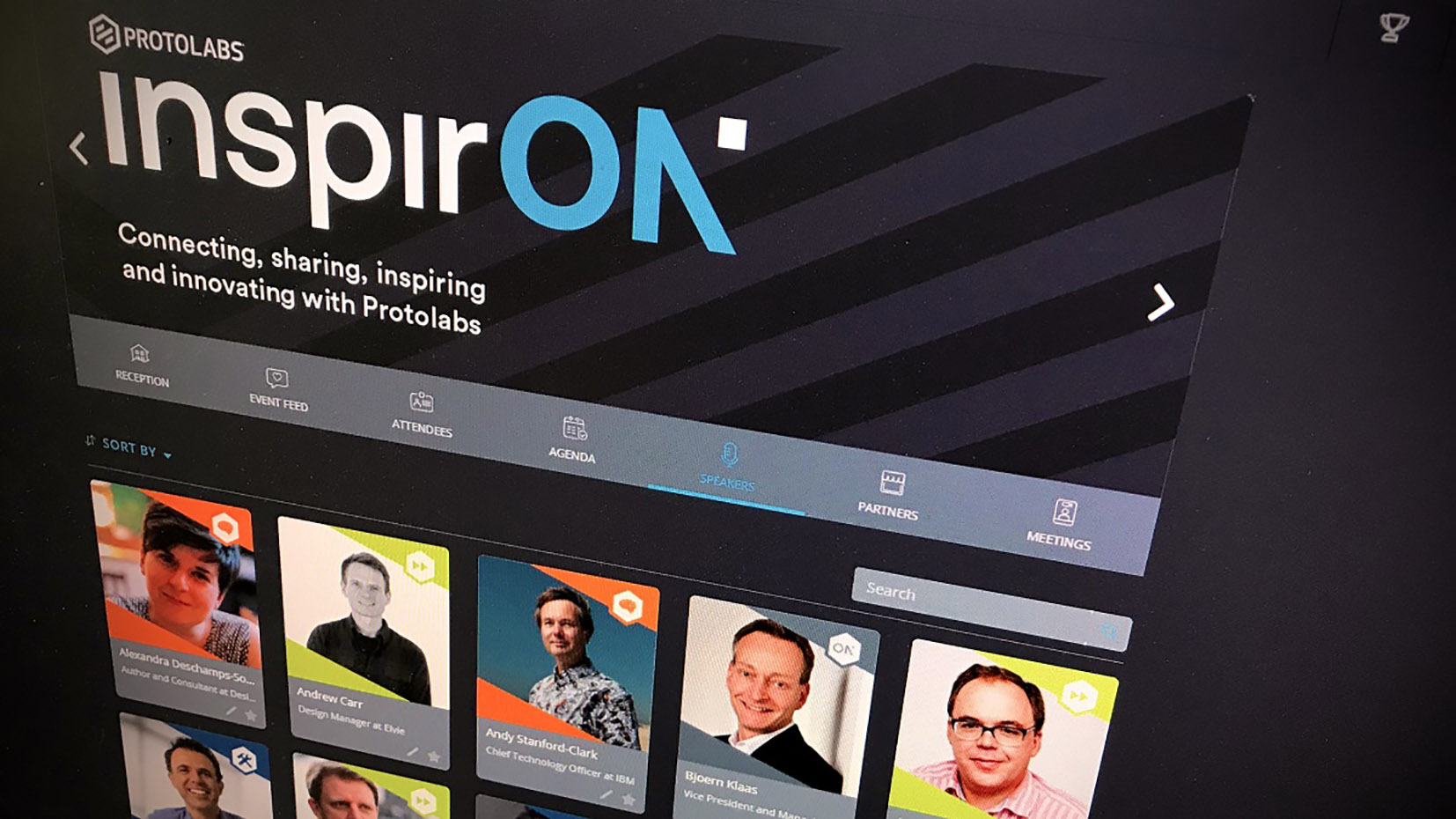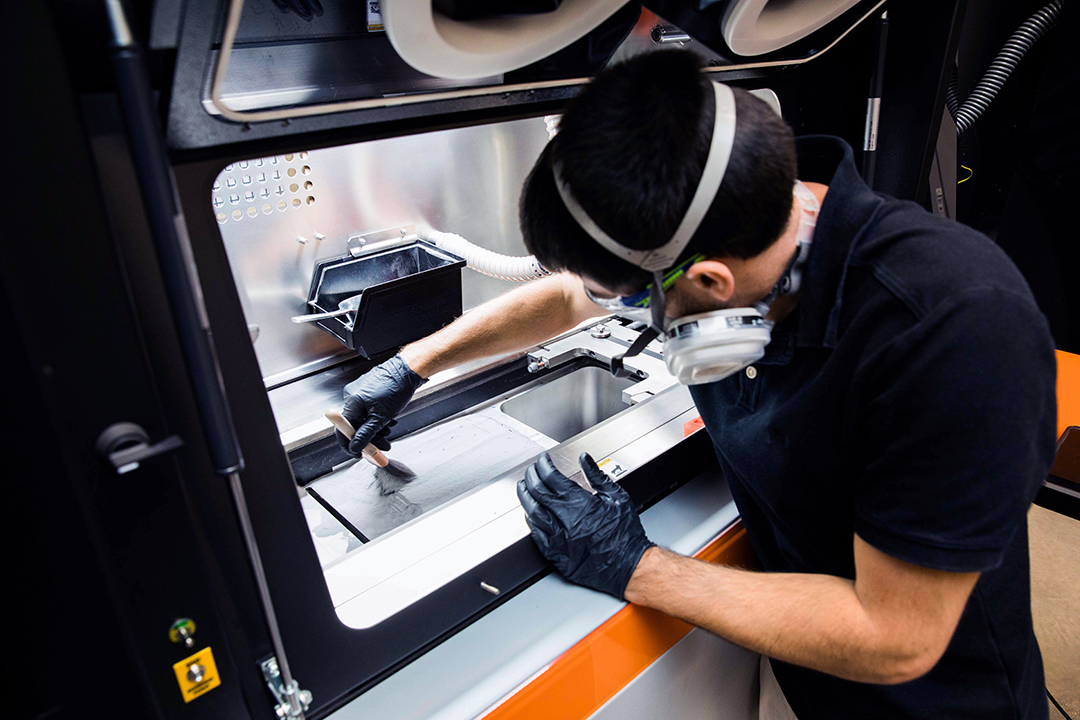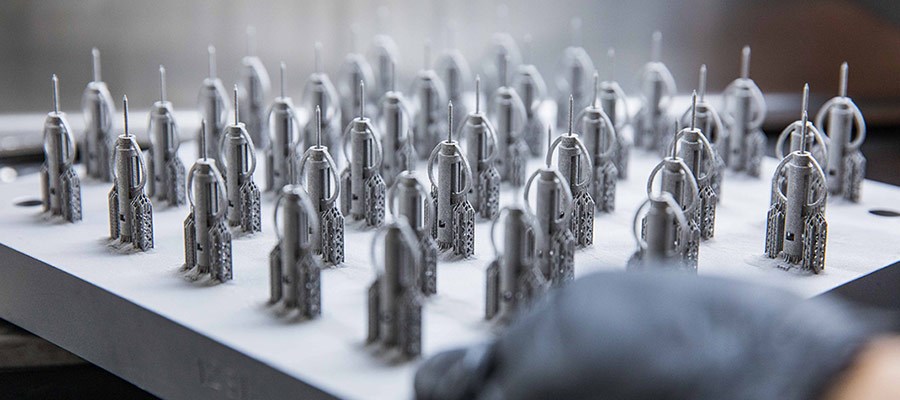On-demand digital manufacturing provider Protolabs is launching a support prize worth £20,000 for designers and companies taking part in the Hackathon Challenge as part of its InspirON sustainability series.
Provided in partnership by Protolabs, the Institution of Engineering and Technology (IET), and technology knowledge hub Wevolver, the InspirON series is an online learning event that has been underway since April 20th with the aim of preparing design engineers across Europe for future sustainability challenges through best practice talks and virtual webinars.
Launching on Thursday, the Hackathon Challenge will give participants the chance to put into practice what they have learned in the sessions to create a hand tool with life-cycle analysis and sustainability at the forefront of their design.
“The Hackathon Challenge is another way of making innovation and product development a reality, with winners being able to secure up to £20,000 in digital manufacturing services to bring their ideas to life,” said Bjoern Klaas, Vice President and Managing Director of Protolabs, Europe.
“InspirON is delivering so much knowledge and expertise to hundreds of designers across Europe that we wanted to make sure it could be absorbed in a practical way that could also deliver new sustainable solutions to everyday issues.”

The InspirON series
According to Protolabs, the InspirON series will help prepare designers and companies for fast-evolving ‘green’ legislation regarding energy efficiency, plastic waste reduction, and the curtailing of greenhouse gases and other pollutants.
The InspirON series began in April and will run until the end of May as an online event hosted on the Hubilo platform. During the series, participants are able to learn directly from experts in the field of sustainability in product design through a variety of CPD accredited seminars, webinars, and panel discussions.
Topics covered in the sessions include how to achieve optimum sustainability through life-cycle analysis, materials, data management, calculating carbon footprint, and best practice, in line with current and future legislation.
“It will be really interesting to see how the different talks have impacted on participants and which areas of learning have resonated with how they see product design and development going forwards,” continued Klaas. “If, as a society, we are going to hit our carbon reduction targets then designers have a massive role to play in creating more sustainable solutions to overcoming everyday problems.”

The Hackathon Challenge
The Hackathon Challenge is one of the main events within the InspirON series, and will give participants the opportunity to take what they learned from the sessions and use it to create a 3D printed hand tool designed with sustainability and life-cycle analysis in mind.
Entries to the challenge can be made until July 31st, after which the submitted products will be assessed by a panel of judges from Protolabs, IET, Wevolver and a number of speakers from the InspirON sessions.
The experts will judge the hand tools on their manufacturability and life-cycle analysis credentials, in addition to looking at the product’s potential market impact, whether it meets current need, and how the sustainability improvements will be achieved.
The competition winner, or winners, will be able to take advantage of a £20,000 support prize encompassing Protolabs’ digital manufacturing services in order to bring their ideas to life.
“All participants of the Hackathon Challenge will have access to the Protolabs design analysis and manufacturability software and our manufacturing capabilities in prototyping and low volume production will be available to the winner or winners,” said Klaas.
Further information on the challenge and how to enter will be outlined in an upcoming talk this Thursday 13th May, at 12pm BST. Those interested in taking part in the challenge can register for the event here.

The Sustainable Innovator Challenge
Running alongside the Hackathon Challenge will be the Sustainable Innovator Challenge, where participants will be asked to demonstrate what they have learned during the InspirON series over the longer term.
Designers will be asked what they can showcase as being a more sustainable product in light of taking part in the sessions, and how they have reduced their carbon footprint, made end-of-life improvements to products, or had a greater market impact as a result of taking on board learnings from the talks.
“The advantage of submitting for the Sustainable Innovator Challenge is the potential to gain recognition for the work you do towards creating a more sustainable product, or a more sustainable process in your operations,” said Klaas.
“It provides a fantastic opportunity to further help market your product, as well as providing a platform to enhance your reputation within the design community.”

Sustainability initiatives in 3D printing
Improving sustainability within 3D printing processes and technologies is an area that is seeing continual developments, and there have been several recent initiatives and projects underway to further advance sustainable practices.
In February, the Smart Fusion Material Research Cluster brought together interdisciplinary teams from Wichita State, the University of Kansas, and Kansas State University, to explore material design and manufacturing in order to advance sustainable practices in metal 3D printing design and manufacturing processes.
Meanwhile, EU-funded project NOVUM is aiming to address global awareness around resource sufficiency, climate change, and the circular economy by exploring cellulose as a substitute for fossil-based materials for automotive, marine, and electrical insulation applications.
Elsewhere, several projects are currently underway to address the circular economy concept within additive manufacturing, including producing biobased materials for 3D printing from waste food, and the creation of closed-loop supply chains producing high-performance metal powders from scrap sources.
Most recently, leading 3D printer manufacturer EOS was selected to represent the 3D printing sector as part of the 50 Sustainability and Climate Leaders initiative, a project by the international business community with the goal of combating climate change.
Subscribe to the 3D Printing Industry newsletter for the latest news in additive manufacturing. You can also stay connected by following us on Twitter and liking us on Facebook.
Looking for a career in additive manufacturing? Visit 3D Printing Jobs for a selection of roles in the industry.
Featured image shows all of the speakers taking part in the InspirON series can be found on the Protolabs website. Photo via Protolabs.



